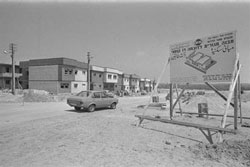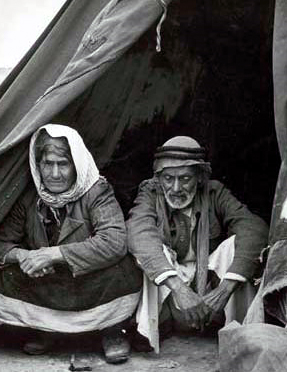Over the past few years, the resettlement of refugees has been one of the key issues in international politics. The horrendous conflict in Syria has forced more than half the country to flee from their homes, with 4.8 million refugees rushing to neighbouring countries, and one million having applied for asylum in Europe. The United Nations has taken the resettlement of refugees very seriously, trying to persuade countries around the world to make commitments to take in and resettle these people.
At the end of an international conference on the refugee crisis in March, the United Nations High Commissioner for Refugees, Filippo Grani, said:
Today has been an important event… we have heard pledges that increase the number of resettlement and humanitarian places to 185,000……but this is only the start. We heard offers to significantly increase global resettlement programs in the coming few years. And we hope that there will be several opportunities to do so in the coming months.
With this in mind, the following fact may come as a surprise: Forty years ago, on November 23, 1976, the United Nations condemned a country for resettling refugees. The next fact may be less surprising: the country was Israel.
When Israel came to govern the West Bank and Gaza after the Six Day War in 1967, it found Palestinian refugees still in the camps that they had been in since 1948. Israel developed a plan to begin moving the Palestinians out of the squalid and cramped refugee camps, and into permanent residences. The Israeli government gave participants in the program a plot of land to build on, and services such as water, electricity and sanitation. Approximately 10,000 families left the refugee camps to move to these better, newer accommodations.

But on November 23 1976, the UN General Assembly passed a resolution calling on Israel to return the refugees to the refugee camps from which they had come from. In fact, on the same day three years later, November 23, 1979, the General Assembly passed another similar resolution, in which they “call[ed] upon Israel to desist from the removal and resettlement of Palestinian refugees in the Gaza Strip.”
What could possibly explain this position? How could the United Nations possibly condemn a country for the crime of resettling refugees who had been abandoned in squalid camps for two decades?
The answer is in the 1979 Resolution itself. The Resolution states that “measures to resettle Palestinian refugees away from their homes and property from which they were displaced constitute a violation of their inalienable right of return.”
The “right of return” is the Palestinians’ claim that they have the right to return to their pre-1948 abodes. It is a highly debatable “right” — not least because it is based on a UN resolution that the Arabs rejected. And why did everyone criticize Israel 40 years ago? Because if the Palestinian refugees would settle in comfortable living quarters then they may not want to return to their original villages. In the eyes of the “supporters” of the Palestinians at the UN, the Palestinians have the right of return to their original homes, but are forbidden to move anywhere else.

This absurd resolution cuts to the heart of how Palestinian refugees are different than all other refugees in the world. With all other refugees, the focus of international organisations is humanitarian and social; the statute of the UNHCR, the UN body that deals with all refugees, explicitly states that its goals are not political. But with the Palestinians, the social and humanitarian needs of refugees and their children are of secondary importance, with the political goals being more important. If helping improve Palestinians lives harms the claim of a “right of return” and weakens the Palestinians claims against Israel — then the political goals win, and Palestinians must stay in camps for decades.
It is their goal for there to be more and more Palestinian refugees each year. For other refugees, wealthy Arab countries can offer generous amounts of money to alleviate the situation. With the Palestinians, because their refugee status has become politicized, there is no incentive for countries to do the very simple task of building permanent homes for them.
To this day, Western media will report on the squalid conditions of the Palestinian refugee camps — and indeed the conditions that many Palestinians experience in these camps are terrible. But November 23 is the time to remember why their situation has not improved. Arab leaders have always treated Palestinian refugees as a political, rather than as a humanitarian issues, and have placed political attacks against Israel above the welfare of the Palestinian people.
Originally published at The Algemeiner and JNS.org.
Contributed by Aron White, CAMERA intern.
